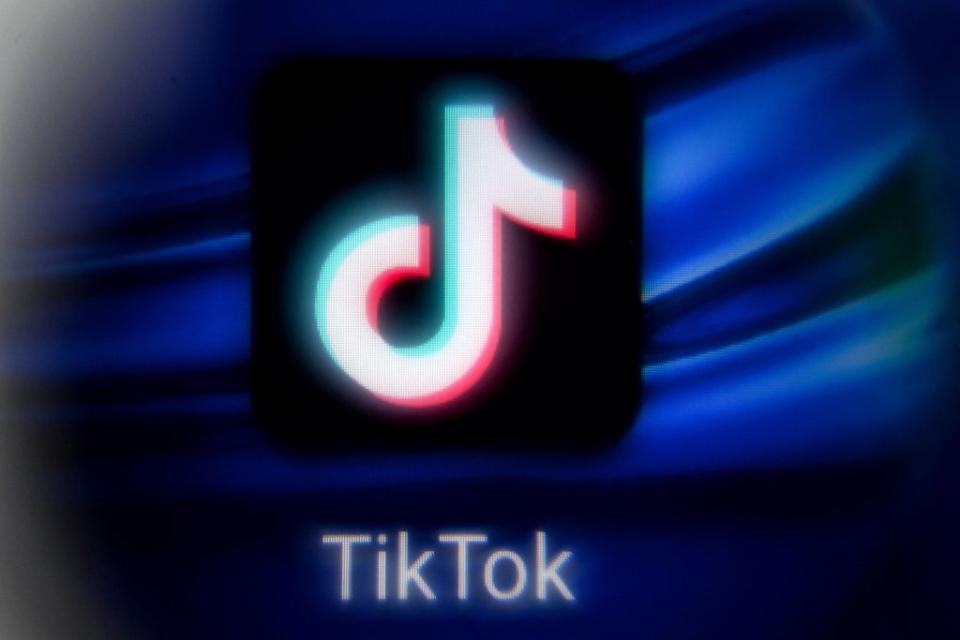New study identifies ‘TikTok addiction’ and the symptoms that show users might have it

A new study has identified some of the behaviours of “TikTok addiction”, when users develop a dependence on the viral video app.
TikTok, which has not been studied as much as other social networking sites like Facebook, Instagram, and Twitter, can encourage compulsive behaviour.
Troy Smith, from the University of Trinidad and Tobago, analysed data from 354 college students, which included 173 TikTok users and 313 Facebook users.
The Facebook users completed a questionnaire known as the Bergen Facebook Addiction Scale, which measures the six core elements of addiction: salience, mood modification, tolerance, withdrawal, conflict, and relapse.
On the Facebook Addiction Scale, the criteria are: Having obsessive thoughts about Facebook, feeling an urge to use Facebook more and more, using Facebook to forget about personal problems, trying to cut down on the use of Facebook without success, becoming restless or upset when prohibited from using Facebook, and using Facebook so much that it negatively impacts school or work.
For this study, a version of the scale was adapted in which the word “Facebook” was replaced by “TikTok.”
Users who scored higher on this scale used TikTok more intensively, and although the majority of users (68.2 per cent) were classified as having “no risk” of TikTok addiction, 25.4 per cent of them were seen as being at “low risk,” and classified 6.4 per cent as being “at-risk.” TikTok currently has one billion users globally.
“Although most users appear to use TikTok in a non-problematic manner, the study demonstrates that the risk of overuse and possible problematic use exists and is associated with addiction-like behaviors that can potentially negatively impact the daily lives of sufferers,” Dr Smith told PsyPost.
“Further, the study emphasizes while similarities exist between the addictive process occurring in Facebook and TikTok there are significant differences in manifestation, predictors, and usage intensity associated with average vs problematic use. As such, a user can exhibit problematic use on a specific platform and not have the same maladaptive response with the broader category of social media.
The most definitive signs of addiction, Dr Smith went on, are that the user become nervous, irritable, anxious, or exhibits strong feelings of sadness when deprived of access to the social networking site.
“TikTok addiction is without a doubt a very real thing. Unfortunately what this research hasn’t explored is society’s dependency to the internet since the pandemic. We were forced into an online-only world, in both our working and personal lives. Social Networking Sites like TikTok became a form of escapism for many, especially our younger generation but what starts as harmless enjoyment can quickly develop into something more serious”, Nuno Albuquerque, Consultant Treatment Lead for the UK Addiction Treatment Group comments;
“We know this because we treat people for social media and internet based addictions, and we have seen first-hand a rise in the number of people we are treating for this since 2020. But the difficulty comes in the way we treat this addiction, especially when an abstinence based treatment model isn’t appropriate. Instead, we focus on the individual’s personal triggers, setting boundaries and limits, encouraging real-life interactions to negate feelings of loneliness and methods to build self-worth and esteem.”
In a statement, TikTok said: "We are focused on supporting the well-being of our community so that they feel in control of their TikTok experience. We take steps such as proactively surfacing in-feed reminders to take breaks from our app, limiting evening push notifications for younger users, and enabling parents to manage screen time as part of our Family Pairing features."

 Yahoo Finance
Yahoo Finance 